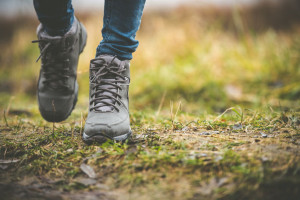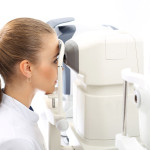Another great benefit to being active
 Exercise. We all know we need it. But your bones will be particularly thankful to you if you get up and go. No matter your fitness level or what you do, staying active will help to strengthen your body. Check out these special perks that exercise offers your skeleton:
Exercise. We all know we need it. But your bones will be particularly thankful to you if you get up and go. No matter your fitness level or what you do, staying active will help to strengthen your body. Check out these special perks that exercise offers your skeleton:
Bone development. The action of resistance exercises actually stimulates the formation of bone tissue. Pretty cool, don’t you think? You don’t need fancy equipment. Dumbbells, exercise tubing, your own body weight, bricks, bottles of water — they can all be used in resistance training. Check out this guide from the Centers for Disease Control and Prevention.
Better skeletal support. Stronger muscles and increased endurance give your skeleton the support it needs to remain active. This is especially important as we get older.
Resistance to fractures. This is a huge benefit for older adults. Falls and other accidents aren’t as dangerous when your bones are dense and healthy.
Stronger bones. This is a key benefit because post-menopausal women tend to lose about 1% of their bone density each year. Research shows that weight-bearing exercise can help prevent — and even sometimes reverse — bone loss in both the spine and hip bones. Anyone ages 50+ can benefit from weight-bearing exercise. Ask your physician about it!
Research shows that women who walk at least four hours per week can actually decrease their risk of osteoporosis by 40% compared to sedentary women. Walking is a great no-impact type of exercise that yields many different types of health benefits. It’s a great way to remain healthy and active as you get older.
How exactly does exercise help your bones as you age? It’s simple: Bones benefit from the pressure exercise puts upon them. Pressure aids in the calcification process. Combined with a healthy diet, it’s a great combination to remain healthy and active. Body-building exercise like walking is super efficient at building bone mass. So get out there and get active! You’ll want to make sure to check with your physician before starting any exercise program, of course.
Your physician may recommend specific types of exercise depending on any health conditions you may have. For example, if you have low bone mass, your physician may recommend that you protect your spine by avoiding exercises or activities that flex, bend, or twist. And remember, even a simple walk for a few minutes a day can provide substantial health benefits. Your spine and skeleton will be stronger, and your entire body will thank you.








